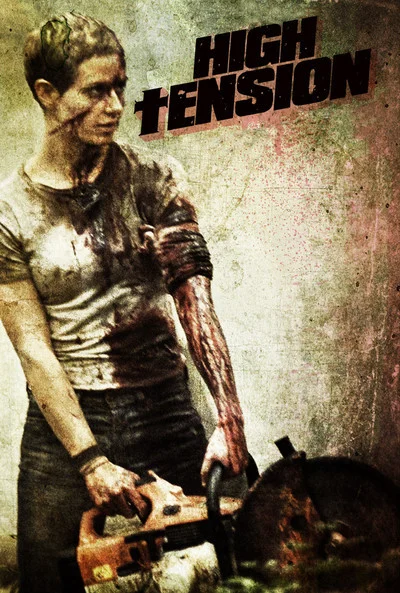Fragmented: The Story Behind the Story
I've had Fragmented knocking around inside of my brain for years--literally years. It began when my girlfriend and I were watching High Tension, a French horror film, in my old apartment in Chicago. The movie's storyline actually has nothing to do with the story of Fragmented, but it triggered the motivation to write it. I won't spoil the plot twist at the end of the movie, but the lesbian subtext that my girlfriend and I had inserted into the movie (as we do for nearly every heterosexual movie or tv show we watch) actually turns into context by the end of the film.
"Huh," we said to each other as the film's credits panned down the television screen. "Who does a gay chick have to blow to get a happy ending around here?"
Don't get me wrong—I love a good twist at the end of a story. Nothing gives me greater pleasure than to be blindsided by a storyteller with an ending I never saw coming. And I don't necessarily believe that queer characters require a "happily-ever-after," especially if it feels forced (see my co-authored novel, Drained). But in my humble opinion, there's not enough happy endings in queer stories, and the biggest perpetrator of this has been the movies. Let's be honest: you'd probably never waste your time on the majority of contemporary lesbian films if it wasn't for all those sweet, sweet lady kisses.
Believe me. I've seen them all. I'm just as guilty as you are.
What I find more problematic than the over-the-top acting and the high-waisted jeans, is that too often by the end of the film, one of the main characters loses her job, gets arrested, goes crazy, dies, or marries a man. I won't take the time to list here all the sad queer films that have been produced in the last few decades because life's too short (Lost & Delirious, I'm looking at you).
These contemporary films mirror the typical endings you'd find in lesbian pulp fiction written in the 1950s and 1960s at the height of McCarthyism and the Red Scare. It wasn't until Claire Morgan's 1952 novel, The Price of Salt (whose film adaptation is due in movie theaters this spring under the title Carol, and stars Cate Blanchett and Rooney Mara as the story's protagonists, and I CAN'T WAIT), that a lesbian couple had even a semblance of a happy ending at the end of the story. But even after Morgan's novel (the pen name of The Talented Mr. Ripley's Patricia Highsmith), happy endings for queer couples were far and few between due to censorship and national attitudes towards homosexuality.
This is why in my own writing, Elle doesn't lose her job after pursuing a former student, why Sam goes after Nora, why Allison finally Comes Out of the Closet, and why Sydney leaves her own wedding. In some small way, I feel an obligation to make up for all the unhappy endings we've endured over the years.
Because of my aversion to lesbian tropes (i.e. lesbian as mentally ill, lesbian as serial killer, lesbian as nymphomania) and unhappy endings, I wrote two endings for Fragmented. And to be honest, I struggled in the decision of which to use as the official, published ending. To remedy this internal struggle, you'll find a link to the alternate ending on this page as an Easter egg.
I'm eager and nervous and excited and a panoply of other emotions to hear what you think of this latest novel. Thank you all for your continued support.
Stay warm,
Eliza
Residing in the attics of our brains one finds an assortment of things: personal baggage, photo albums spilling with childhood memories, and family skeletons. Harper Dawkins has locked and sealed the door to her personal attic by moving out of state to attend college and dropping all contact with former friends and family. She’s even changed her accent.
Be normal. Fit in. Blend into the crowd: it’s all she’s ever wanted. But Harper’s about to discover that while you may be able to divorce yourself from your past, you can’t run away from yourself.
In this psychological, romantic thriller, Fragmented blends high tension with the pursuit of an unlikely romance.















